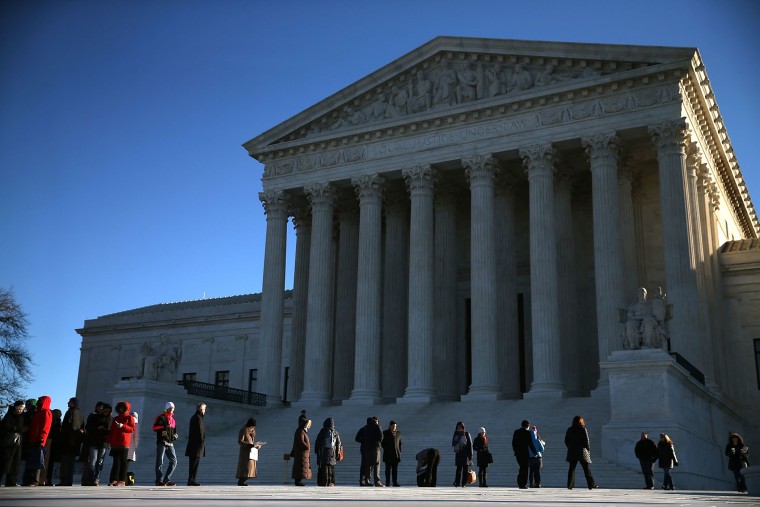A few months ago, Frank Sharry, executive director of America's Voice, an immigration advocacy group, looked ahead to a striking scenario. "Immigration is already front and center," Sharry said. "Just imagine if a Supreme Court decision on whether 5 million undocumented immigrants get work permits is handed down right in the middle of the general election."
The Supreme Court will hear a major immigration case this term challenging President Obama's executive actions to protect millions of undocumented immigrants from being deported. The justices' announcement Tuesday provides the Obama administration's greatest shot at getting the 2014 executive measures on track before the president leaves office. Oral arguments for the case are set for this spring with a final decision ultimately coming by the end of the court's term in June.
Let's back up for a minute and consider how we reached this point.
In November 2014, soon after the midterm elections, President Obama announced a major overhaul of his administration's approach to immigration policy, which came to be known as DAPA (Deferred Action for Parental Accountability). The White House extended temporary status to millions of undocumented immigrants, shielding them from deportation threats.
At the time, the Justice Department took the unusual step of publishing a dense, 33-page legal memo, explaining in great detail exactly why the president's executive actions are legally permissible under existing laws, rulings, and precedents. Federalist Society members couldn't come up with a constitutional objection; Obama's actions are in line with what some of his Republican predecessors did without incident; and the whole legal argument against Obama's actions seemed a little silly.
Conservative judges, however, didn't quite see it that way.
A right-wing district court judge rejected the White House's policy, and just as importantly, froze it in place before it could be implemented. Conservatives on the 5th Circuit upheld that ruling.
It sets the stage for what will probably be yet another 5-4 ruling from the Supreme Court.
At the same time, all of this is unfolding during a presidential race, and while we don't yet know who the Republican nominee will be, we do know that every member of the GOP field is on record opposing the president's proposed policy.
A ruling in this case is likely to come down just weeks ahead of the parties' national conventions.
